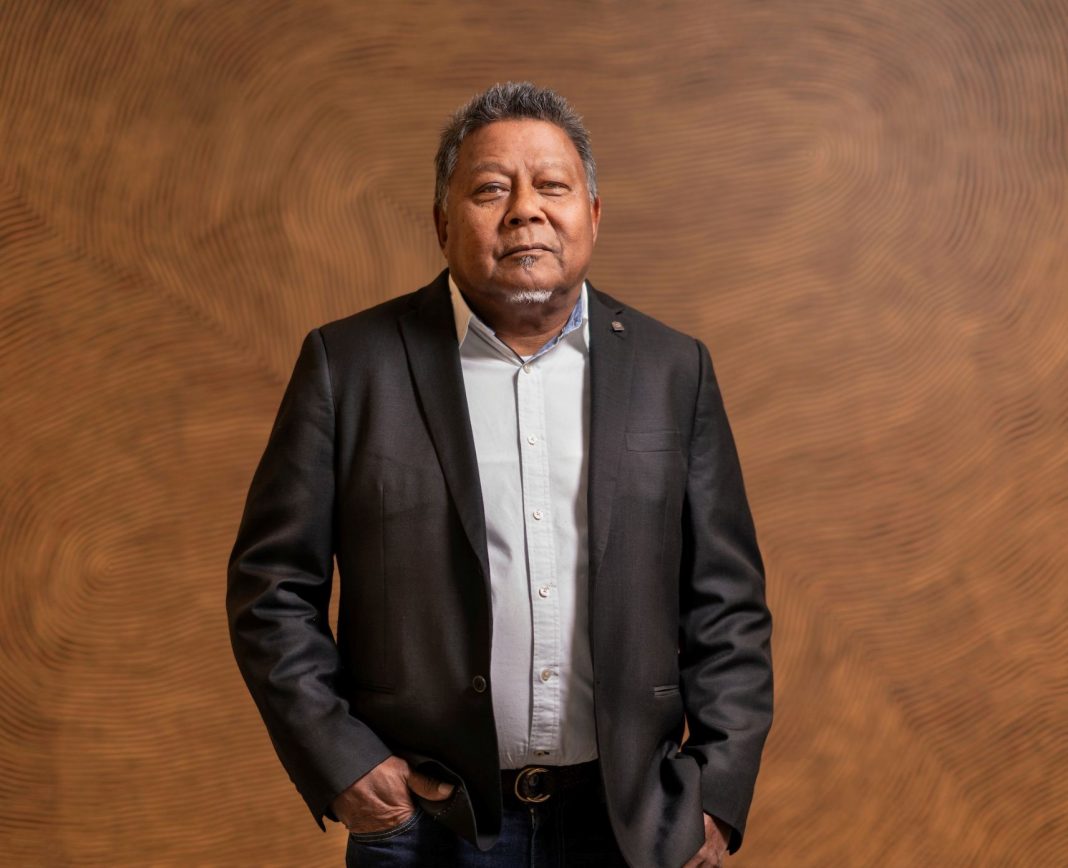The First Nations Economic Empowerment Alliance, a collaboration between Indigenous groups and the Australian National University, the first of its kind in Australia, will advocate for economic reforms to benefit First Nations people in Australia.
The Alliance is the result of two years of work and research by the ANU First Nations Portfolio. Members include the National Native Title Council, First Australians Capital, the Indigenous Land and Sea Corporation, and Indigenous Business Australia.
Professor Peter Yu, Vice-President (First Nations) at the ANU, said the First Nations Economic Empowerment Alliance would “kick start a long overdue and much-needed conversation in Australia” that would place Indigenous economic prosperity at its heart.
“Australia has never pursued comprehensive macro-economic policy for Indigenous peoples,” Professor Yu said. “As a people, as a community, we are all too aware of the consequences of this policy vacuum.
“We cannot, as an implication of the referendum outcome, let the economic wellbeing of Indigenous communities fall by the wayside. The work to co-design national economic empowerment policies for First Peoples must start now.
“That’s exactly what we will do with as the First Nations Economic Empowerment Alliance.”
The Alliance intends to co-design national economic empowerment policies for First Nations people, starting with the recent publication of the Murru Waaruu Outcomes Report, which Professor Yu says lays out the framework for economic reform.
The report argues for Indigenous wealth creation rather than welfare, leveraging opportunities such as Australia’s transition to clean energy, which involves Indigenous lands.
The report was the culmination of an international symposium and a series of seminars, led by the ANU, and incorporating First Nations leaders and experts, industry, researchers, philanthropists and government officials.
“At its simplest, the report calls for a new fiscal relationship with First Peoples, one based on Indigenous wealth creation, not welfare,” Professor Yu said.
“The report finds that governments must begin to forge a new policy approach on Indigenous economic empowerment, built on our unrealised positive capacities and capabilities, to complement entrenched social policy priorities, which are so often characterised by deficits and deficiencies.
“Nowhere is this opportunity better illustrated than Australia’s pursuit to be a global leader in the clean energy transition.
“Most of these renewable projects, and indeed the critical minerals needed to support such a transition, will be sourced and established on Indigenous lands.
“This presents an opportunity to work with Indigenous communities as equity partners, sharing risks and benefits, so that we do not repeat the same mistakes of past resources booms.
“We have before us an important opportunity to deliver, for the first time in Australia, an effective national Indigenous economic empowerment strategy that involves Indigenous communities as economic partners in our national economy.”
Ian Hamm, Chairman of the Indigenous Land and Sea Corporation, and Leah Armstrong, Co-founder and former Chairperson of First Australians Capital, both argued for an economic, rather than social, approach to address First Nations disadvantage.
“We have maxed out the social policy credit card, and all the while we have had the economic policy credit card in our back pocket,” Mr Hamm said.
“We have barely touched that card in Australia. It is time to use it to drive change for Indigenous peoples. Failure to do so will be an indictment on us all.”
“Our lives, and the lives of our future generations, are characterised by the absence of economic opportunities to address our marginalisation and exclusion,” Ms Armstrong said.
“To improve life outcomes, we need to direct our energy to building a new, more equitable fiscal relationship between government and First Peoples.”



